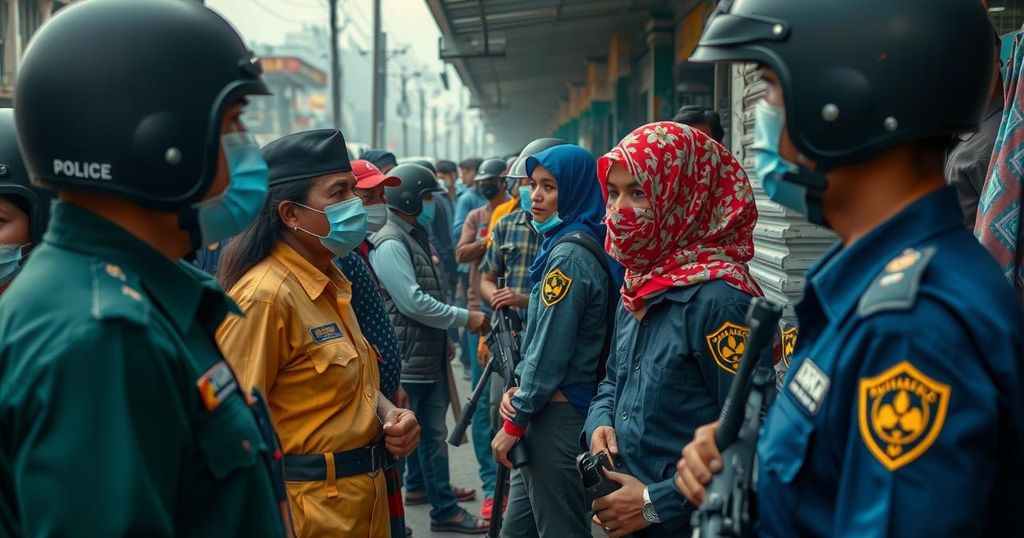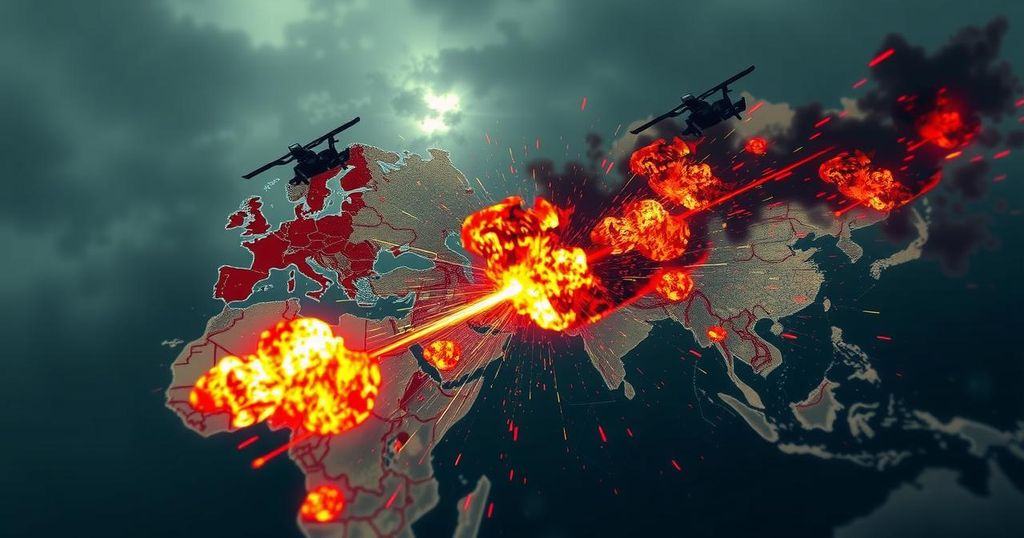Uganda’s Role in Arms Transfers to South Sudan Revealed in New Report
Summary
A report by Conflict Armament Research indicates that Uganda facilitated the diversion of European arms to South Sudan during its civil war, bypassing an EU arms embargo. High-ranking military officials in South Sudan were reportedly involved, raising concerns about regional military dynamics amid ongoing conflict that has displaced millions and caused substantial loss of life.
A recent report from the Conflict Armament Research (CAR) has revealed that Uganda facilitated the transfer of arms and ammunition to South Sudan during the peak of its civil war, in a manner that breaches the European Union arms embargo imposed on the East African nation. To bypass this embargo, South Sudan coordinated with the Ugandan government to provide end-user assurances for weapon purchases from Bulgaria, Romania, and Slovakia. The inquiry, based on four years of thorough investigation, outlined a clear paper trail documenting the journey of these weaponry shipments from manufacture in Europe, through Uganda, and ultimately into South Sudan’s conflict zones. James Bevan, the director of CAR, stated, “We have a paper trail from point of manufacture, through export to Uganda, through diversion to South Sudan, and to the recovery of the weapons on the battlefield.” While the Uganda military’s representative has thus far refrained from public comment on these allegations, South Sudan’s governmental spokesperson has similarly declined to provide any statements concerning the findings. The research highlights the involvement of high-ranking South Sudanese military officials in this arms supply chain. Even though Uganda openly declared its support for the South Sudanese military by deploying troops during the conflict that ignited in 2013, the previously undocumented specifics surrounding arms transfers accentuates the complex nature of regional military relationships. Consequent to the ongoing conflict, which has resulted in over one-third of South Sudan’s population being displaced, the report also notes undisclosed transfers of Sudanese and Chinese-made weapons to South Sudanese opposition fighters throughout air and land routes from 2014 to at least mid-2015. Despite regular denials from the Sudanese government regarding support for insurgents, both nations have played significant roles as sponsors of current peace agreements and are preparing to deploy peacekeeping forces in the region. The recent peace deal signed by South Sudan’s President Salva Kiir with rebel factions in September highlights continued volatility in the region, as prior agreements, including one in 2015, deteriorated swiftly due to renewed violence between government forces and combatants. The EU has maintained an arms embargo against Sudan since 1994, expanding this ban to South Sudan following its separation from Sudan. It has been reported that the arms diverted from Uganda to South Sudan may have violated end-use commitments that were prerequisites to the original sales.
The conflict in South Sudan has roots in political strife following its independence from Sudan in 2011. This civil war, which began in 2013, has resulted in widespread devastation, with more than 12 million people affected by violence and displacement. The European Union enforced an arms embargo on Sudan since 1994 and extended it to South Sudan post-independence. The recent discovery of arms transfers from Uganda to South Sudan amidst this embargo unveils critical insights into the dynamics of regional security and military cooperation, particularly concerning the roles of Uganda and Sudan in the conflict.
The report from the Conflict Armament Research organization brings to light significant evidence of Uganda’s role in circumventing the European Union’s arms embargo by facilitating the transfer of weaponry to South Sudan. It underscores the involvement of South Sudanese military officials in these operations, revealing a complicated nexus of military support and arms diversion that has exacerbated the humanitarian crisis in the region. The ongoing conflict, resulting in significant loss of life and displacement, continues to pose challenges to peace efforts, necessitating comprehensive scrutiny of the international arms trade and regional collaborations.
Original Source: www.africanews.com







Post Comment